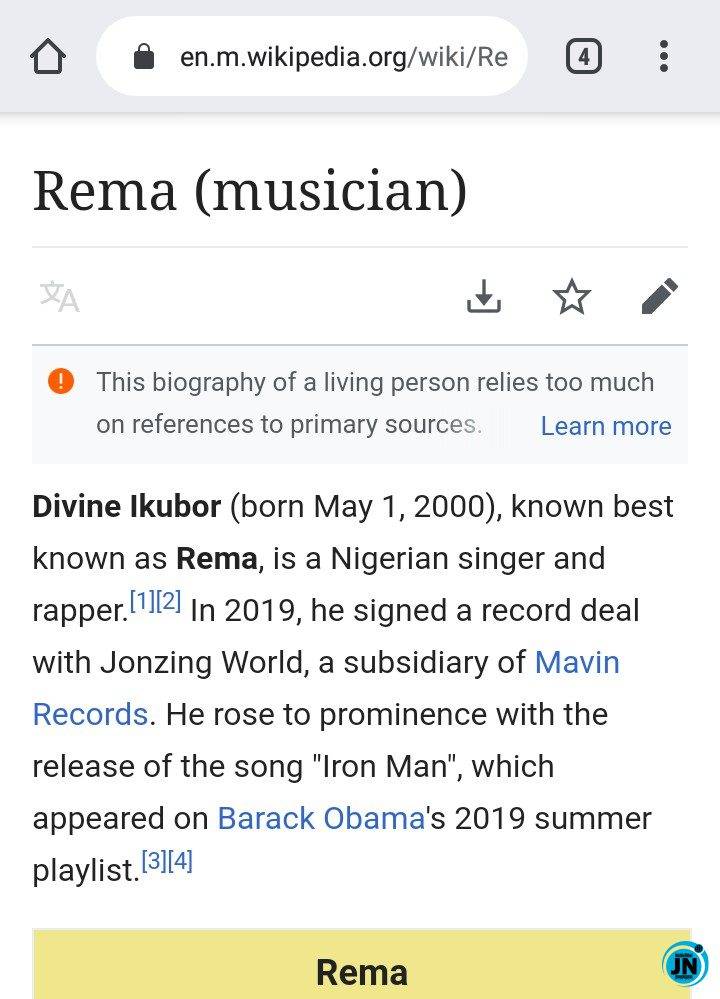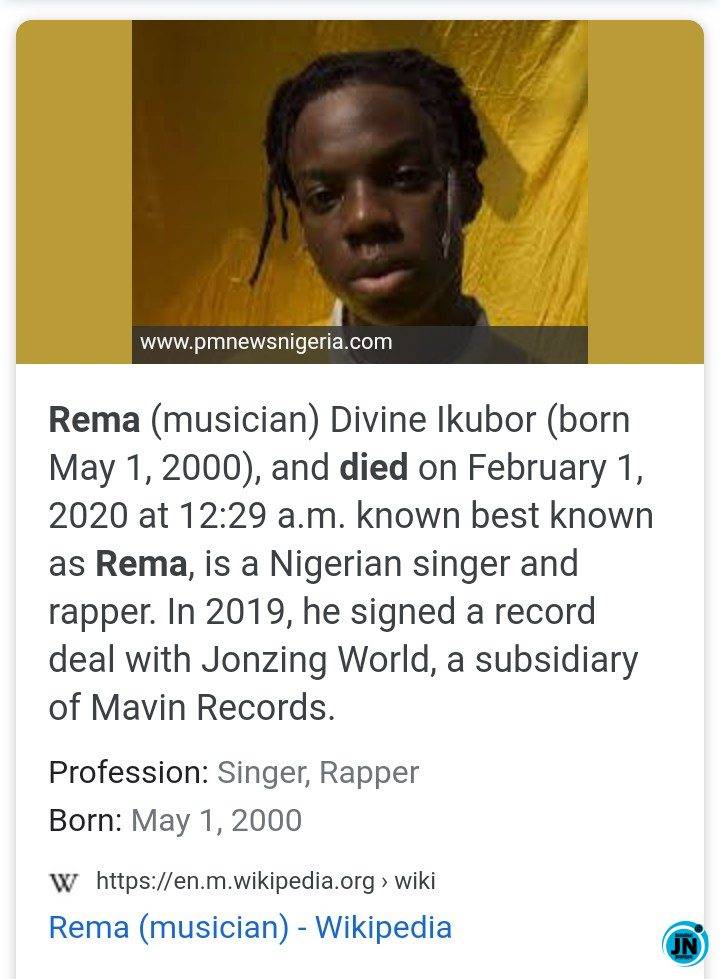Turns Out Fake News Is Mostly A Boost For African Entertainers

About three months ago (in February), false news made rounds on social media, suggesting that Nigerian music artist, Divine Ikubor—popularly known as Rema—had passed on.
Local media outlets carried the development, but in a short time, the root of the incorrectness was discovered. Regardless, “Rema” was the top trend on the Nigerian—and possibly African—twitter community.
Some insiders called it a much needed publicity for Ikubor and his record label, Mavin Records.
In as much as the narrative was not necessarily a major springboard for the 20-year-old artist and the Don Jazzy-led organization, it was part of the countless series fake new sagas that put African entertainers in the spotlight.
King Kaka, a Kenyan rapper formerly known as Kennedy Ombima, went through a similar “fake death news” ordeal in December 2019 after it was rumored that his supposed end was plotted for. However, there isn’t reportage to convey the effects of the event.
But How Much Damage?
To understand the extent to which fake news hurts African entertainment startups, it is best to look at it from the perspective of a record label, not just the artist.
In a place like Africa where verifying information only recently became relatively ingrained in content consumption habits, it is easy for people to believe almost anything they come across online.
El Distro Network, Records and Publishing Inc. is an Irish distribution company that is based in Tunisia. The brand, which has worked with populars such as Weld El 15, Lil K, Amyne, and El General, believes that fake news can impact the image of the artist, depending on the content.
Nevertheless, El Distro Network’s founder, Amer Nejma, is of the opinion that fake news come with a certain perk only core entertainment businesses can understand.
“I think in the North African region, fake news bring fame. They tend to bring about more works or contracts to the artists, even though it could impact their image. More so, it can also help in making more money,” Nejma told WeeTracker.
El Distro did not provide numerical or financial information to show how much falsifications impact the business. But it did acknowledge that being the subject of fake news in the past has mostly doubled its branding strength and reach.
Root Cause
Rema’s fake news had an unlikely difference. It did not originate from Twitter, Instagram or Facebook. The source of the information was traced back to the music star’s dedicated page on Wikipedia.
Apparently, the page showed that Rema died on February 1, 2020 at 12:59 PM. Wikimedia Foundation, the nonprofit organization that operates Wikipedia, does not set editorial policies for its sites. How pieces are curated and published is up to the community of volunteer editors.
Over the years, the community of volunteer editors has developed policies, guidelines, and tools for creating content, guarding for quality, and addressing vandalism and other negative behaviors on Wikipedia.
These editors and administrators serve as a vigilant first line of defense against any kind of manipulation. This effort—to monitor and address vandalism on the world’s largest collaborative free knowledge resource—is ongoing.
Wikimedia told WeeTracker at the time that the page was vandalized. However, the volunteers had the situation reverted within minutes. Before then, the news had already spiralled out of control, and any real possible damage could have been done.
“Wikipedia is edited more than 350 times a minute, so to address that kind of scale, volunteer Wikipedia editors have created systems and processes on Wikipedia to identify and guard for the platform’s neutrality and reliability,” the foundation said.
Loud In The Silence
Back in 2015, Abbey Elias—another Nigerian singer, popularly known as Skiibii—took things to a different level by faking his own death. People sympathized over his “untimely demise”, but it was not long after that the former Five Start Music artist reveal that he pulled the stunt to draw attention to his work.
In spite of the act being frowned upon by many, his publicity efforts suggested that fake news, at best, acts as a publicity boost for entertainment businesses. In the words of a source who did not want to be identified with this matter, “Some of them just want to trend and become popular, at least for one, no matter what it takes”.
Things generally did not happen as Elias expected, perhaps because of his choice of tactic. His rise to fame was hampered by seemingly unending criticism, but his hard work later paid off, as his songs since 2018 have made hits.
The population of many African countries are overwhelmingly young—the median age in the continent is just over 19. As such, social media is a central source of news, which means that stories of questionable provenance can gain significant traction in a matter of minutes. This given could be the very leverage for entertainment-related fake news creators.
One study suggests that false news spread faster than true stories because they are “novel,” noting that new information “conveys social status on one that is ‘in the know’ or has access to unique ‘inside’ information.”
Photo by David Schap via Unsplash

